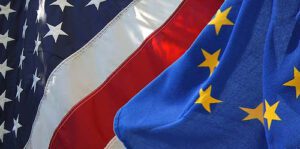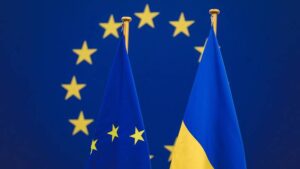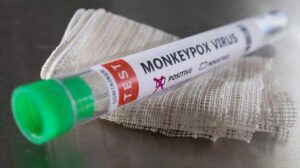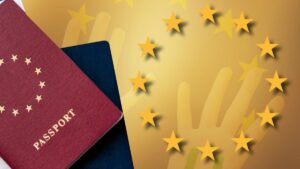
Ukraine has joined the countries of the European Union that have an approved national plan for the implementation of the principles of open science, the Ministry of Education and Science reports.
“The Government has approved the Decree “On the Approval of the National Plan for Open Science”. The document is the next step towards the integration of Ukraine into the European Research Area,” the press service of the ministry said in a statement.
It is noted that the implementation of the plan will ensure the implementation of the Agreement between Ukraine, on the one hand, and the European Union and the European Atomic Energy Community, on the other hand, on Ukraine’s participation in the Horizon Europe Research and Innovation Framework and the European Community Research and Training Program on Atomic Energy. Energy (2021 – 2025), complementary to the Horizon Europe Research and Innovation Framework.
It is expected that the subsequent implementation of the national plan for open science will create: regulatory and legal prerequisites for the formation of the state policy of open science; provide interested parties with open access to devices, tools and other means of obtaining a scientific result; will ensure the processing of scientific data, taking into account the principles of FAIR (a set of principles for the visibility, accessibility, compatibility and reuse of scientific data); will contribute to the acceleration of the circulation of scientific information, will provide access to relevant scientific information without discrimination; create conditions for more efficient use of the results of research and development carried out with the involvement of budgetary funds; will make the scientific and educational space more transparent.

The Kyiv International Institute of Sociology notes a multiple drop in the share of those wishing to leave for permanent residence in the United States or EU countries in the event of obtaining citizenship of these countries from the fall of 2020.
“In October 2020, KIIS conducted an all-Ukrainian telephone survey, which, among other things, posed the question “And if you were now granted US or EU citizenship without conditions, would you go to these countries for permanent residence?” At that time, 28% of all adults of Ukrainians were ready to go abroad.In September 2022, we asked this question again… 91% became more of those who would not want to leave,” the press release on the results of the study says.
At the same time, KIIS notes that currently about 10% of adult Ukrainians are now abroad as refugees. “However, even if half of them would answer yes to this question (recent surveys of Ukrainian refugees show that in fact the majority still want to return home, that is, the answers “yes” would most likely be less than half), then the decline in emigration sentiment would also be significant, from 28% to around 13%.
According to the results of the study, in all regions of Ukraine, the absolute majority of the population (90-92%) would not want to travel abroad.
In terms of age, younger respondents are more willing to emigrate, but in fact, among all ages, the vast majority (at least 84%) would not want to go to live in the US/EU. “In 2020, almost half (46%) of young people under 30 would like to leave, now it is 13%,” the KIIS stressed.
The survey was conducted on September 7-13 by the method of telephone interviews using a computer (CATI) among 2,000 respondents from all regions of Ukraine, controlled before February 24, and did not cover citizens who left abroad. The statistical sampling error under normal circumstances (with a probability of 0.95 and taking into account the design effect of 1.1) did not exceed 2.4% for indicators close to 50% and 1.1% for indicators close to 5%. In war conditions, a certain systematic deviation is added to the error, but the results obtained still retain high representativeness, the KIIS notes.

On Tuesday, the EU Council officially decided to provide Ukraine with an urgent additional macro-financial assistance (MFA) in the amount of 5 billion euros, the press service of the European Council reports.
“On September 9, EU finance ministers agreed on a statement in support of this additional €5 billion assistance to Ukraine at an informal meeting of the Ecofin Council in Prague. Today, this additional assistance was formally accepted after the necessary formal steps were completed in just 11 days,” he said. the message says.
It clarifies that this financial assistance is in addition to other European Union support to Ukraine already provided in the humanitarian, customs, defense and development sectors.

The WHO Regional Office for Europe and the European Commission (EC) have confirmed their joint efforts to prevent monkeypox, which threatens to become endemic in Europe, according to a communiqué published in Brussels on Tuesday.
“We are witnessing an unprecedented spread of monkeypox orthopoxvirus in our region and around the world,” said Hans Kluge, Director of the WHO European Office, and Stella Kyriakidis, EC Health Member, in a joint statement on the occasion of the 72nd session of the WHO Regional Committee for Europe.
“This zoonotic virus, previously associated with only limited human-to-human spread in non-endemic countries, is now a global cross-border public health threat in Europe and an international public health emergency,” the document emphasizes.
The statement said that since the beginning of May 2022, more than 23,000 cases of monkeypox have been reported in the WHO European Region, of which more than 18,000 occur in the EU and the European Economic Area.
“The coordinated and collaborative response efforts of our European national and regional health agencies and authorities have been very important and we are now seeing a decline in cases in recent weeks. We believe the way to prevent the disease from becoming endemic in our region is to first fight against outbreaks and then working towards sustainable elimination of monkeypox in Europe, which means no sustained human-to-human transmission,” Kluge and Kyriakidis explain.
They pledged that the European Commission and WHO will continue to work together in consultation with Member States to “determine joint timelines, criteria and indicators to prevent the disease from becoming endemic in Europe.”

2,740 farmers from Ukraine have already applied for participation in the program financed by the budgetary support of the European Union through the State Agrarian Register (SAR), according to the website of the Ministry of Agrarian Policy and Food on Friday.
Farmers with a land bank of 1 to 120 hectares (with payment of up to 3.1 thousand UAH/ha), and owners of 3 to 100 cows (with payment of up to 5, 3 thousand UAH/head).
According to the Ministry of Agrarian Policy, a total of 2,299 applications were submitted for payments in the first direction, and 437 in the second.
The agency recalled that the acceptance of applications for assistance in the two above areas will last until November 15, 2022.
At the same time, only agricultural producers registered in the GAR and meeting its criteria can be participants in the program. Currently, 11,000 users have already registered with the GAR, who can access information about existing state support programs in real time and apply for it online.
As reported, GAR is an automated electronic system available to all agricultural producers, regardless of the form of management. With the help of the registry, it is planned to provide public services, simplify access to bank financing and loan guarantee programs, as well as introduce targeted government support programs and evaluate their effectiveness.
The project is being implemented in coordination with the State Geocadastre, the Ministry of Justice and with the assistance of the World Bank and EU project “Support for transparent land management in Ukraine”, as well as the USAID Agricultural and Rural Development Program.
In the last three years, the EU has been supporting the introduction of GAR in Ukraine. With technical and financial assistance from the EU, the government has developed the software and carried out two pilot implementations ahead of a nationwide launch in August 2022.

The EU decision to suspend the facilitated visa agreement with Russia has taken effect and will be applied from September 12, the Official Journal of the European Union said.
“The application of the Agreement between the European Community and the Russian Federation on the facilitation of the issuance of visas to the citizens of the European Union and the Russian Federation is suspended in whole as regards citizens of the Russian Federation, as from 12 September 2022,” it said.
The document noted that the decision would take effect on the day of adoption, i.e. Friday. However, it will be applied from Monday, considering that the EU must notify the other party to the agreement, Russia, within 48 hours since the decision is approved.